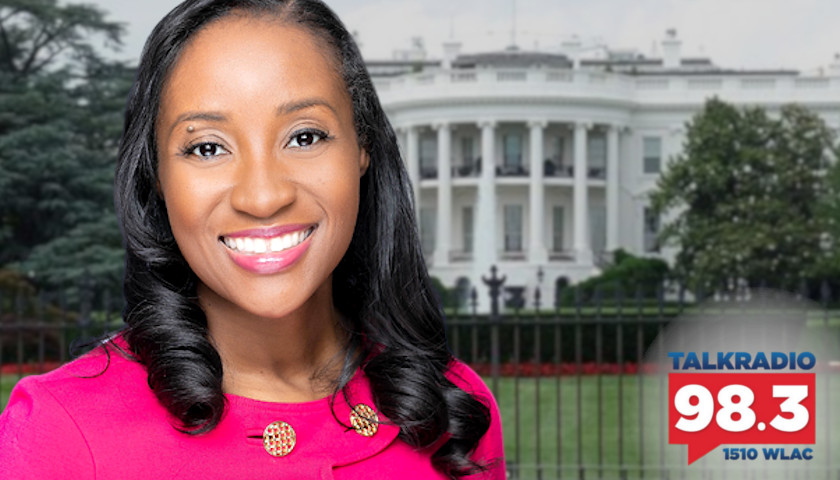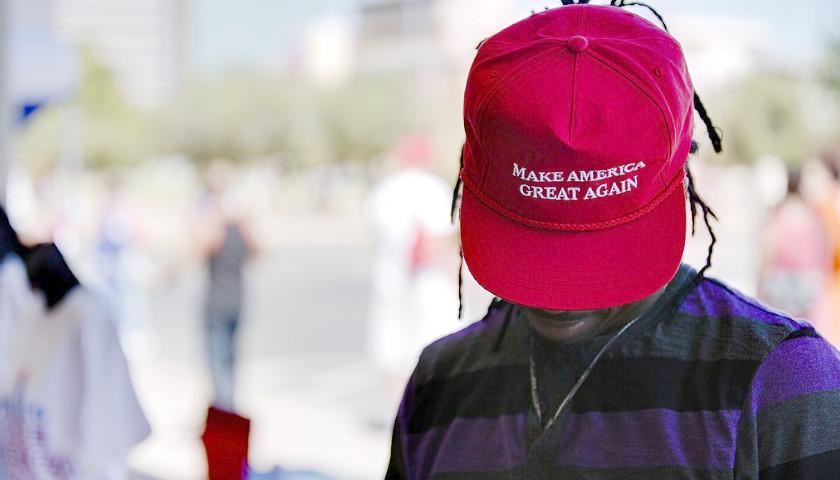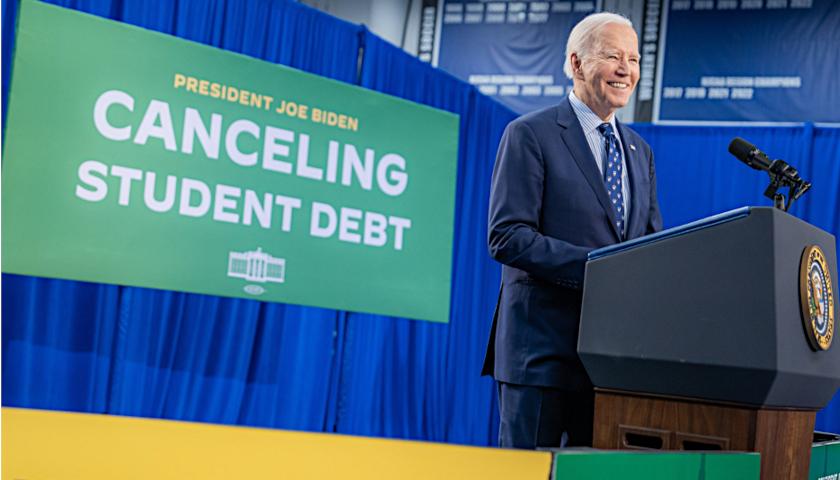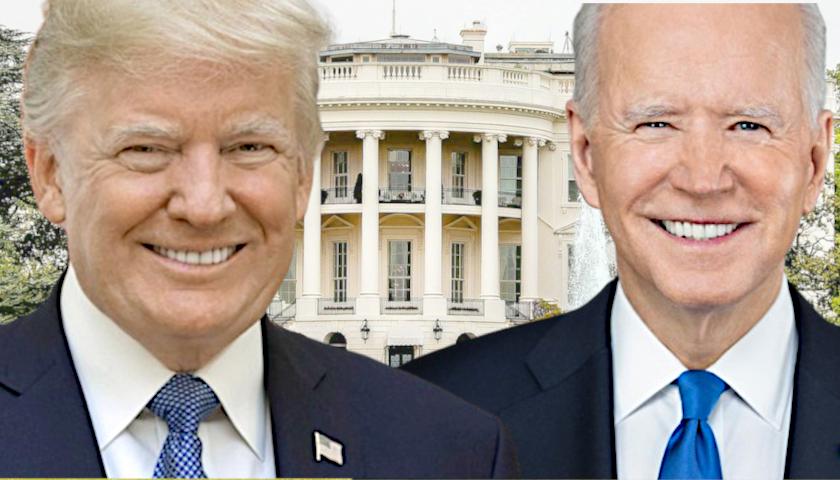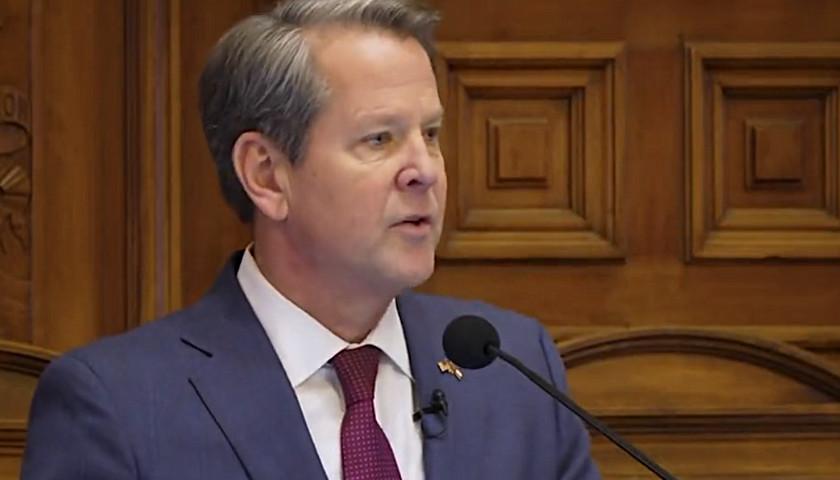Live from Music Row Friday morning on The Tennessee Star Report with Michael Patrick Leahy – broadcast on Nashville’s Talk Radio 98.3 and 1510 WLAC weekdays from 5:00 a.m. to 8:00 a.m. – host Leahy welcomed the Independent Women’s Forum Senior Policy Analyst Patrice Onwuka to the newsmakers line to give her take on Joe Biden’s recent press conference and Georgia’s recent passing of the Election Integrity Act of 2021.
Leahy: We are joined by our good friend on newsmaker line Patrice Onwuka, who is the director of the Center for Economic Opportunity at the Independent Women’s Forum. Patrice, we’re getting to be good friends. Thanks for coming back.
Onwuka: Absolutely. Good morning, Michael.
Leahy: Well, big news yesterday. Did you see a somnambulant occupant of the White House holding a press appearance yesterday?
Onwuka: I did. I watched the entire thing.
Leahy: You did! Somebody had to do that. (Onwuka chuckles) Somebody had to sit through the entire thing. How did you make it through that debacle?
Onwuka: I was looking for the gotchas, and there were plenty of them. I was looking to see how many of the questions would be softballs. Or let’s get you on the record as supporting a really far-left agenda. And we got those two. And I wasn’t disappointed. Now, I will say I was also doing work and watching babies. The babies probably helped.
Leahy: Well, you were able to make it through because your mind was otherwise occupied because Joe Biden’s mind was occupied with that notebook right in front of him, apparently. And also occupied with trying to avoid selecting a reporter who might actually ask something other than a softball question.
Onwuka: I do hear that Fox News’s Peter Doocy unfortunately he was not given the chance to ask a question, and he was the only one who would actually ask serious questions on the campaign trail. So maybe there’s a reason why there was just not enough time for him.
Leahy: See, if I’m Peter Doocy. I’m thinking, am I just a prop here? Do they just put me in this room with a mask looking dopey just so that they can say, yeah, there was a Fox News guy there. Going into that if you’re Peter Doocy, what do you think the odds are that the president is actually going to call you to ask a real question?
Onwuka: Oh, there is probably like a 1 percent likelihood. But he’s always on his game, and he’s always ready and that’s what I appreciated. He actually would ask. He put his own colleagues on glass by asking the questions that they were not willing to. So kudos to him for just showing up and being ready at all times.
Leahy: Yeah, I like Peter. He was here in Nashville in 2018 when Marsha Blackburn had a press conference. He did a really good job. He’s relatively young. Of course, he’s Steve Doocy’s son. You’ve been on Fox and Friends. I think I haven’t gone in the past. Yeah, a few times this year.
Leahy: Well, of course, I was on that show once, a long time ago, and Steve Doocy interviewed me. Very nice guy. Very nice guy. He comes at it from the weather. He was a weather guy for a long time, I think. But he’s very affable. And so his son, Peter, has gone into the hard news. And I agree with you. He’s still in his 20s I think.
But he’s probably the best White House reporter there is at the moment. Which shows you that the rest of them, they are not exactly throwing hardballs and throwing fastballs. In fact, they were the softest of the softball. Did you see that one reporter from PBS? Her intros of the question? Of course, you’re the kindest, most delightfully dignified person ever in the history of the world. Tell us why you are that? Did you see that one?
Onwuka: (Chuckles) Yes, yes. I will say that there were a couple of others at the harping on the filibuster. Certainly, it’s racist. It has groups and Jim Crow laws. If you agree with that, then don’t you support getting rid of it? That I think was the most nauseating of the questions because the reporters obviously were advancing an agenda rather than asking a question and letting his answer be the answer.
Leahy: I’m glad you brought that up because, of course, the Jim Crow laws were passed in the 1880s, 1890s in the South by the Democratic Party. The filibuster has been around the Senate since 1806. They got their history wrong. I know that’s a shock to you.
Onwuka: Exactly. Exactly.
Leahy: So if you were in that press conference, what kind of questions would you ask have asked the current occupant of 600 Pennsylvania Avenue?
Onwuka: I would ask about China and our relationship with China. Has his view changed on whether they are just an adversary or just kind of a bad guy? What is the relationship between him and the head of China looks like? Is he serious about holding them accountable for abuses? I would absolutely also ask about the one-point-nine trillion-dollar spending bill.
And the proposed $3 trillion more of infrastructure spending he wants to enact. Where is the money coming from? Is he committed to ensuring that middle-class families are not going to be hit and clarifying what he means by what his administration means by $200,000 or more paying for the next round of big government spending? I would have asked questions like that.
Leahy: They’re not going to invite you. (Laughter) Those are actually real questions Patrice.
Onwuka: I know. I know.
Leahy: One word I didn’t hear there. Did anybody ask a question about all the human rights abuses of the Communist Chinese Party of the Uyghurs? Did you hear that question asked?
Onwuka: I did not hear Uyghurs. He mentioned briefly human rights, and he talked about the great relationship they had talking for two hours, and people were surprised. That does not give me a vote of confidence that he’s willing to hold China accountable. And we obviously know that Hunter Biden is hovering over this entire conversation about China. It is what it is.
Leahy: And the other news, but this is a little bit out of the area that you follow, but I’ll just see if you’ll take a look at this. I’m mostly interested in the competing narratives about this particular bill. Did you see yesterday in Georgia? And we’re talking about election integrity laws. An election integrity law that is designed to prohibit private funding of election administration that limits the use of drop boxes and puts more constraints on absentee ballot voter verification. It’s called the Election Integrity Act of 2021. Yesterday passes the Georgia House, the Georgia State Senate, and signed by the governor, all in just three or four hours. Did you see that? What was your take on that?
Onwuka: Yes. I caught it. Really interesting. I think number one, this is going to be the start of other similar state efforts to shore up their electoral processes, and obviously, particularly in red states, not blue ones. Number two, I think it sends a message that Georgia wants to really ensure that voters stick to a really defined time frame on voting. And number three, it’s going to be the battle of who is able to spin this in the best way. Obviously, the left is spinning this as voter suppression.
The right is spinning it as voter integrity. And I think individual voters in the state, but also nationwide, they’re going to have to figure out where they fall on that spectrum. I think there is nothing wrong with ensuring of states setting up their own rules about how their elections are run and the time frames within which voters can vote. You do have to be careful that some things don’t unfortunately limit people’s access to voting. But I also support voter ID. And ensuring that just like we have to present an ID to buy alcohol, why can’t we people present an ID to vote? So it’s going to be interesting. And this is just the start.
Leahy: I think you’re right. And what I find interesting about it is, of course, the states are looking at this. Georgia did pass that law, which I thought was quite good. It wasn’t perfect, but it was much better than the current law. But you’ve got this whole it’s going to be Arizona on other red States. But then you’ve got, of course, at the national level HR1 which the Democrats call what was the For the People Act. Which Republicans call the Corrupt Politicians Act. It’s interesting about the framing. I’m so glad you brought that up. Did you read The New York Times the other day? They described the Georgia bill as voter suppression. Unbelievable.
Onwuka: That’s exactly the language you’re going to hear. And it’s not surprising. I mean, I do have friends who live in Georgia who will tell me, hey, Patrice, you do understand that there are lots of Georgia voters who go to church, particularly Black churches, and they get together on Sundays, and they go out and they go and vote afterward. And so efforts like this could have an impact on the ability of groups to organize voters together.
I’m not going to weigh in on the specifics and things like that. But I do think there is nothing wrong in a state determining for itself what the rules are and what they’re going to allow. And you’ve got to fight back against the bundling of both the large collection of votes and ballots. You don’t know what’s going to happen there. It opens the door for potential fraud. And I think that’s what we need to be looking at.
Listen to the full first hour here:
– – –
Tune in weekdays from 5:00 – 8:00 a.m. to the Tennessee Star Report with Michael Patrick Leahy on Talk Radio 98.3 FM WLAC 1510. Listen online at iHeart Radio.
Photo “Patrice Onwuka” by Independent Women’s Forum.

